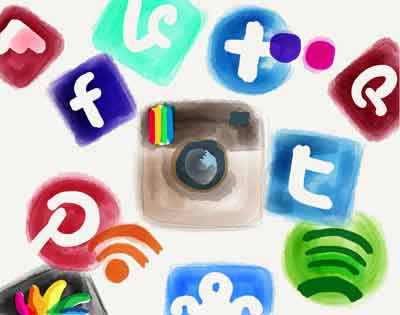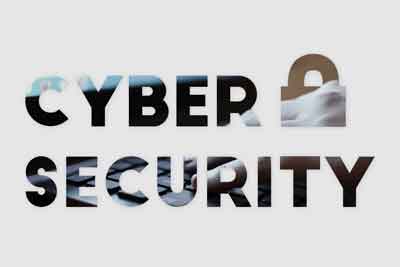- Home
- Malware Basics
- Computer Protection Security
Computer Protection Security | How Much Do YOU Care?
The Computer Protection Security Guest Article is by Thomas Milva, Blogger, Tech Enthusiast and IT Security Specialist.
Every aspect of your computer protection security is important. How much thought and improvement you put into protecting yourself says a lot.
We don’t think too much of bad things happening to us because it’s a lot easier that way, which is why when/if disaster strikes, we are just not ready to deal with it.
In this article, we focus first on cybersecurity, as this is the topic that constantly requires attention and updates, for everyone online, including students.
It is essential to note that our online security, including protection against the rising cases of cyberbullying, is just as relevant as the security of our home or workspace.
We seriously doubt that you would simply allow any suspicious character to walk into your home and snoop around your possessions and people you care about, so why would you let that happen on the World Wide Web?
Keep up with the latest news and developments
Sign up to the eComputerZ Newsletter
The free A to Z of performing BIOS updates guide that anyone can follow.
✔ A checklist of important actions to perform throughout the update process.
✔ Further supporting information to aid your update plans.
✔ My unique approach for sourcing the latest BIOS versions for any motherboard manufacturer.
Sign up below for instant access to the guide, or by going to the Subscription page for more details.
I never share information with third parties and your details are secure.
I aim to issue newsletters at the start of each month.
Caring about what is happening to the part of life that is online is common sense, not to mention highly necessary.
That is why we cover some ground on how you can keep yourself protected in days when that protection is the one thing that stands between you and the world of trouble.
Computer Protection Security | Keep It Private on Social Networks
We'll start it off easy. Many people document anything and everything happening to them through their social media accounts, and this can easily become a big security problem.
Letting all your followers know exactly where you are in every moment of every day is not a wise thing to do for one simple reason – you don’t know who else might be watching.
 Computer Protection Security
Computer Protection SecuritySocial Media Montage
Oversharing is never a good idea in general, especially when it comes to social networks.
There are cybercriminals who closely follow what people’s activities are, which leads them to all kinds of personal information no one should have access to – where you physically are every day, who your closest friends are, how often and where you go out and what time you’re not at home.
By posting everything going on in your life, you are practically handing over the treasure map of your life to black-hat hackers, who will not hesitate to use it for their malevolent intentions.
That is why it’s best to be careful with what you’re sharing with your friends and acquaintances. It is always better to be safe than sorry.
Computer Protection Security | How Careful Are You When Downloading?
Another reason for people constantly battling some form of malware on their devices is that they aren’t careful with what they’re downloading and, more importantly, if the source for downloading can be trusted.
Sometimes we’re too eager to get our hands on some content we’ve been waiting for a long time, so we don’t pay attention if the websites that posted it can be trusted.
 Computer Protection Security
Computer Protection SecurityCyber Security Sign
There are millions of virus and malware-riddled websites that are only waiting for the opportunity to infiltrate your device.
That is why you should always check twice to see what you’re dealing with because one download isn’t worthy of you having to deal with spyware and viruses that are often very tricky to get rid of.
There is also a simple way to check whether a website can be trusted, and that is to simply google it – there’s nothing our trusted Google won’t let you know about; you only need to ask.
Of course, having properly working security software will let you know immediately if something is wrong, so be sure to have one.
Computer Protection Security | Pop-up Ads - The Bearers of Doom and Spyware
OK, we can all agree that pop up ads don’t even look trustworthy - something that keeps popping up persuading you to buy something you don’t need can’t bring any good.
This might sound harsh, but it is the truth nonetheless. More often than
not, pop-ups bring all kinds of problems to your operating system – from
changing your default browser to tracking your online activities and sending
that sensitive information to hackers.
 Computer Protection Security
Computer Protection SecurityPopup Ad Montage
These pests can seriously compromise your internet privacy, which is why you should consider getting a VPN and always accessing internet with it.
Virtual Private Networks are there to make everything you do almost impossible to track because it’s all encrypted and your IP address safely moved through servers all over the world.
Computer Protection Security | Have A Backup
Whatever you do, have a backup plan. The same policy should be used for all the valuable information you’ve got on your desktop, laptop, smartphone or tablet, as you never know what might happen.
If you’ve got some invaluable files that you can’t afford to lose, undertake regular backups. There are many ways to ensure that even if push comes to a shove, and you lose some crucial data, or you have to delete everything, you can get at least get a part of it back, if not everything.
The only thing you have to do is decide whether you
want all your confidential information to be stored on an online cloud, or if
you’d prefer to back it all up on an external hard-drive, or even a USB pen.
 Computer Protection Security
Computer Protection SecurityBackup Logo
Being security-aware doesn’t just mean getting an antivirus application and calling it a day. It is a system that you’ve got to work on constantly.
If staying safe online is
of importance to you, then you’ll take this article as a nudge to learn more
about what you can do to secure your devices, and yourself, from the
dark world of threats that exists within the internet universe.
- Home
- Malware Basics
- Computer Protection Security
